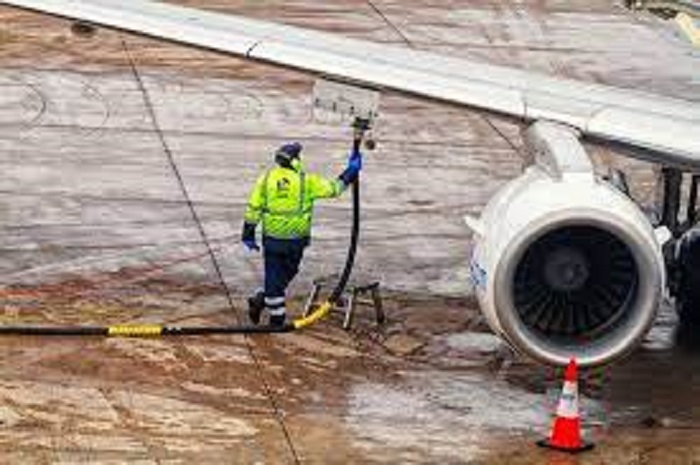Aviation fuel sells above N500 despite interventions
Despite intervention by the Nigerian National Petroleum Company Limited (NNPCL) and the House of Representatives, aviation fuel or Jet A1 has continued to sell above N585 per litre, Daily Trust reports. The fuel is said to take about 40 per cent of an airline’s operating cost. The lawmakers last month met with stakeholders urging that […]

Despite intervention by the Nigerian National Petroleum Company Limited (NNPCL) and the House of Representatives, aviation fuel or Jet A1 has continued to sell above N585 per litre, Daily Trust reports.
The fuel is said to take about 40 per cent of an airline’s operating cost. The lawmakers last month met with stakeholders urging that the product sells for N500 as against N600 in some places while airline operators would be licensed to import Aviation Turbine Kerosene (ATK).
- Alaafin: Aide recounts last moments as UniMaid mourns chancellor
- NIGERIA DAILY: Why The Nigerian Military Is Experiencing Too Many Aircraft Crashes
After that, a meeting between the Executive Director, Distribution Systems, Storage & Retailing Infrastructure of the Nigerian Midstream and Downstream Petroleum Regulatory Authority (NMDPRA), Mr Ogbugo Ukoha and the Group Executive Director, Downstream of NNPC, Mr Adeyemi Adetunji had worked out pricing template in a series of meeting with airline operators, fuel marketers, among others.
But it was learnt yesterday, from operators that nothing has changed as the jet fuel sells for over N500 per litre.
In a statement last week, the Airline Operators of Nigeria (AON) while listing causes of flight delays said, “Some of the more prevalent causes of delays and cancellations include: unavailability and the rising cost of Jet A1 (which today costs above N585 per litre in Lagos, N607 in Abuja and Port Harcourt, and N685 in Kano).”
A member of the AON, Barr. Shehu Wada said there was no drop in the price of the fuel. A fuel marketer also confirmed this yesterday as he said the current prices remain due to the rising global price of crude oil.
“If that has not reduced, if forex has not reduced, then the price of aviation fuel cannot come down. What we did in the meeting we had with the airline operators in Abuja was to show them how we arrived at our price and they agreed that we are going to be using an average of platts for one month to calculate the price.
“When we use that to calculate the platts-based price, we now add our own margin. So, if marketer A’s margin is N40 plus platts and marketer B says he can still sell it and make profit at N30, any airline can go and meet market B,” the marketer said.
